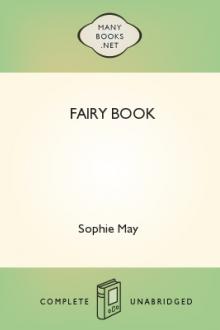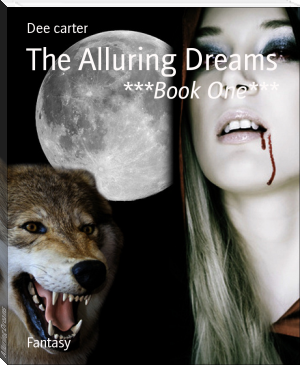The Roots of the Mountains<br />Wherein Is Told Somewhat of the Lives of the Men of Burgdale, Their by William Morris (best sales books of all time .txt) 📗

- Author: William Morris
Book online «The Roots of the Mountains<br />Wherein Is Told Somewhat of the Lives of the Men of Burgdale, Their by William Morris (best sales books of all time .txt) 📗». Author William Morris
‘Nay,’ said Stone-face, ‘hast thou not seen some woman in the wood arrayed like the image of a God? and hath she not bidden thee thus to worship her to-night? For I know that such wights be in the wood, and that such is their wont.’
Said Gold-mane: ‘I worship nought save the Gods and the Fathers. Nor saw I in the wood any such as thou sayest.’
Therewith Stone-face shook his head; but after a while he said:
‘Art thou for the wood to-morrow?’
‘Nay,’ said Gold-mane angrily, knitting his brows.
‘The morrow of to-morrow,’ said Stone-face, ‘is the day when we look to see the Westland merchants: after all, wilt thou not go hence with them when they wend their ways back before the first snows fall?’
p. 59‘Nay,’ said he, ‘I have no mind to it, fosterer; cease egging me on hereto.’
Then Stone-face shook his head again, and looked on him long, and muttered: ‘To the wood wilt thou go to-morrow or next day; or some day when doomed is thine undoing.’
Therewith entered the service and torches, and presently after came the Alderman with Hall-face; and Iron-face greeted his son and said to him: ‘Thou hast not hit the time to do on thy gay raiment, for the Bride will not be here to-night; she bideth still at the Feast at the Apple-tree House: or wilt thou be there, son?’
‘Nay,’ said Face-of-god, ‘I am over-weary. And as for my raiment, it is well; it is for thine honour and the honour of the name.’
So to table they went, and Iron-face asked his son of his ways again, and whether he was quite fixed in his mind not to go down to the Plain and the Cities: ‘For,’ said he, ‘the morrow of to-morrow shall the merchants be here, and this were great news for them if the son of the Alderman should be their faring-fellow back.’
But Face-of-god answered without any haste or heat: ‘Nay, father, it may not be: fear not, thou shalt see that I have a good will to work and live in the Dale.’
And in good sooth, though he was a young man and loved mirth and the ways of his own will, he was a stalwarth workman, and few could mow a match with him in the hay-month and win it; or fell trees as certainly and swiftly, or drive as straight and clean a furrow through the stiff land of the lower Dale; and in other matters also was he deft and sturdy.
CHAPTER IX. THOSE BRETHREN FARE TO THE YEWWOOD WITH THE BRIDE.Next morning Face-of-god dight himself for work, and took his axe; for his brother Hall-face had bidden him go down with him to the Yew-wood and cut timber there, p. 60since he of all men knew where to go straight to the sticks that would quarter best for bow-staves; whereas the Alderman had the right of hewing in that wood. So they went forth, those brethren, from the House of the Face, but when they were gotten to the gate, who should be there but the Bride awaiting them, and she with an ass duly saddled for bearing the yew-sticks. Because Hall-face had told her that he and belike Gold-mane were going to hew in the wood, and she thought it good to be of the company, as oft had befallen erst. When they met she greeted Face-of-god and kissed him as her wont was; and he looked upon her and saw how fair she was, and how kind and friendly were her eyes that beheld him, and how her whole face was eager for him as their lips parted. Then his heart failed him, when he knew that he no longer desired her as she did him, and he said within himself:
‘Would that she had been of our nighest kindred! Would that I had had a sister and that this were she!’
So the three went along the highway down the Dale, and Hall-face and the Bride talked merrily together and laughed, for she was happy, since she knew that Gold-mane had been to the wood and was back safe and much as he had been before. So indeed it seemed of him; for though at first he was moody and of few words, yet presently he cursed himself for a mar-sport, and so fell into the talk, and enforced himself to be merry; and soon he was so indeed; for he thought: ‘She drew me thither: she hath a deed for me to do. I shall do the deed and have my reward. Soon will the spring-tide be here, and I shall be a young man yet when it comes.’
So came they to the place where he had met the three maidens yesterday; there they also turned from the highway; and as they went down the bent, Gold-mane could not but turn his eyes on the beauty of the Bride and the lovely ways of her body: but presently he remembered all that had betid, and turned away again as one who is noting what it behoves him not to note. And he said to himself: ‘Where art thou, Gold-mane? Whose art thou? p. 61Yea, even if that had been but a dream that I have dreamed, yet would that this fair woman were my sister!’
So came they to the Yew-wood, and the brethren fell to work, and the Bride with them, for she was deft with the axe and strong withal. But at midday they rested on the green slope without the Yew-wood; and they ate bread and flesh and onions and apples, and drank red wine of the Dale. And while they were resting after their meat, the Bride sang to them, and her song was a lay of time past; and here ye have somewhat of it:
’Tis over the hill and over the dale
Men ride from the city fast and far,
If they may have a soothfast tale,
True tidings of the host of war.
And first they hap on men-at-arms,
All clad in steel from head to foot:
Now tell true tale of the new-come harms,
And the gathered hosts of the mountain-root.
Fair sirs, from murder-carles we flee,
Whose fashion is as the mountain-trolls’;
No man can tell how many they be,
And the voice of their host as the thunder rolls.
They were weary men at the ending of day,
But they spurred nor stayed for longer word.
Now ye, O merchants, whither away?
What do ye there with the helm and the sword?
O we must fight for life and gear,
For our beasts are spent and our wains are stayed,
And the host of the Mountain-men draws near,
That maketh all the world afraid.
p. 62They left the chapmen on the hill,
And through the eve and through the night
They rode to have true tidings still,
And were there on the way when the dawn was bright.
O damsels fair, what do ye then
To loiter thus upon the way,
And have no fear of the Mountain-men,
The host of the carles that strip and slay?
O riders weary with the road,
Come eat and drink on the grass hereby!
And lay you down in a fair abode
Till the midday sun is broad and high;
Then unto you shall we come aback,
And lead you forth to the Mountain-men,
To note their plenty and their lack,
And have true tidings there and then.
’Tis over the hill and over the dale
They ride from the mountain fast and far;
And now have they learned a soothfast tale,
True tidings of the host of war.
It was summer-tide and the Month of Hay,
And men and maids must fare afield;
But we saw the place were the bow-staves lay,
And the hall was hung with spear and shield.
When the moon was high we drank in the hall,
And they drank to the guests and were kind and blithe,
And they said: Come back when the chestnuts fall,
And the wine-carts wend across the hythe.
Come oft and o’er again, they said;
Wander your ways; but we abide
p. 63For all the world in the little stead;
For wise are we, though the world be wide.
Yea, come in arms if ye will, they said;
And despite your host shall we abide
For life or death in the little stead;
For wise are we, though the world be wide.
So she made an end and looked at the fairness of the dale spreading wide before her, and a robin came nigh from out of a thorn-bush and sung his song also, the sweet herald of coming winter; and the lapwings wheeled about, black and white, above the meadow by the river, sending forth their wheedling pipe as they hung above the soft turf.
She felt the brothers near her, and knew their friendliness from of old, and she was happy; nor had she looked closer at Gold-mane would she have noted any change in him belike; for the meat and the good wine, and the fair sunny time, and the Bride’s sweet voice, and the ancient song softened his heart while it fed the desire therein.
So in a while they arose from their rest and did what was left them of their work, and so went back to Burgstead through the fair afternoon; by seeming all three in all content. But yet Gold-mane, as from time to time he looked upon the Bride, kept saying to himself: ‘O if she had been but my sister! sweet had the kinship been!’
CHAPTER X. NEW TIDINGS IN THE DALE.It was three days thereafter that Gold-mane, leading an ass, went along the highway to fetch home certain fleeces which were needed for the house from a stead a little west of Wildlake; but he had gone scant half a mile ere he fell in with a p. 64throng of folk going to Burgstead. They were of the Shepherds; they had weapons with them, and some were clad in coats of fence. They went along making a great noise, for they were all talking each to each at the same time, and seemed very hot and eager about some matter. When they saw Gold-mane anigh, they stopped, and the throng opened as if to let him into their midmost; so he mingled with them, and they stood in a ring about him and an old man more ill-favoured than it was the wont of the Dalesmen to be.
For he was long, stooping, gaunt and spindle-shanked, his hands big and crippled with gout: his cheeks were red after an old man’s fashion, covered with a crimson network like a pippin; his lips thin and not well hiding his few teeth; his nose long like a snipe’s neb. In short, a shame and a laughing-stock to the Folk, and a man whom the kindreds had in small esteem, and that for good reasons.
Face-of-god knew him at once for a notable close-fist and starve-all fool of the Shepherds; and his name was now become Penny-thumb the Lean, whatever it might once have been.
So Face-of-god greeted all men, and they him again; and he said: ‘What aileth you, neighbours? Your weapons, are bare, but I see not that they be bloody. What is it, goodman Penny-thumb?’
Penny-thumb did but groan for all answer; but a stout carle who stood by with a broad grin on his face answered and said:
‘Face-of-god, evil tidings be abroad; the strong-thieves of the wood are astir; and some deem that the wood-wights be helping them.’
‘Yea, and what is the deed they have done?’ said Gold-mane.
Said the carle: ‘Thou knowest Penny-thumb’s abode?’
‘Yea surely,’ said Face-of-god; ‘fair are the water-meadows about it; great gain of cheese can be gotten thence.’
‘Hast thou been within the house?’ said the carle.
‘Nay,’ said Gold-mane.
p. 65Then spake Penny-thumb: ‘Within is scant gear: we gather for others to scatter; we make meat for others’ mouths.’
The carle laughed: ‘Sooth is that,’ said he, ‘that there is little gear therein now; for the strong-thieves have voided both hall and bower and byre.’
‘And when was that?’ said Face-of-god.
‘The night before last night,’ said the carle, ‘the door was smitten on, and when none answered it was broken down.’
‘Yea,’ quoth Penny-thumb, ‘a host entered, and they in arms.’
‘No host was within,’ said the





Comments (0)